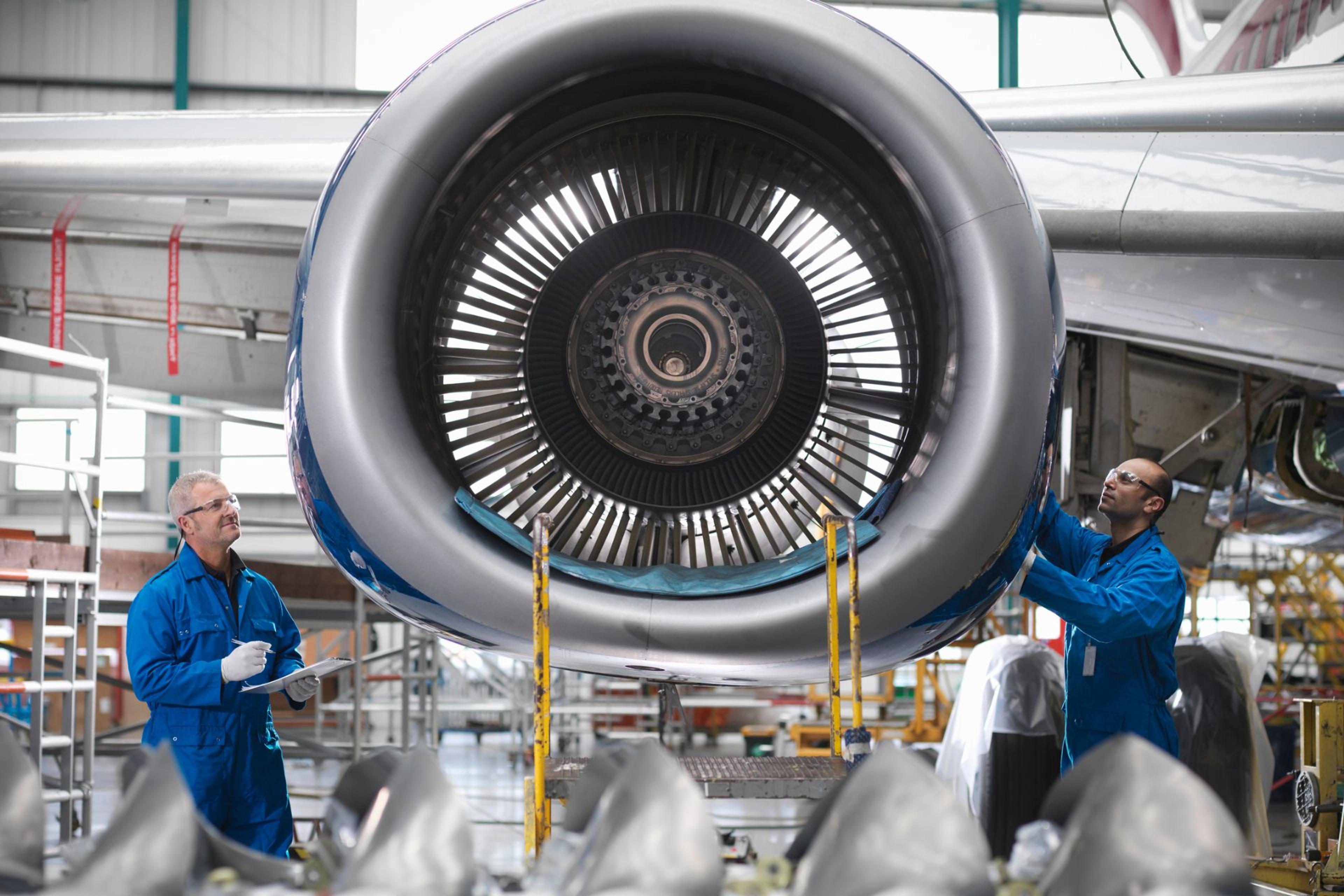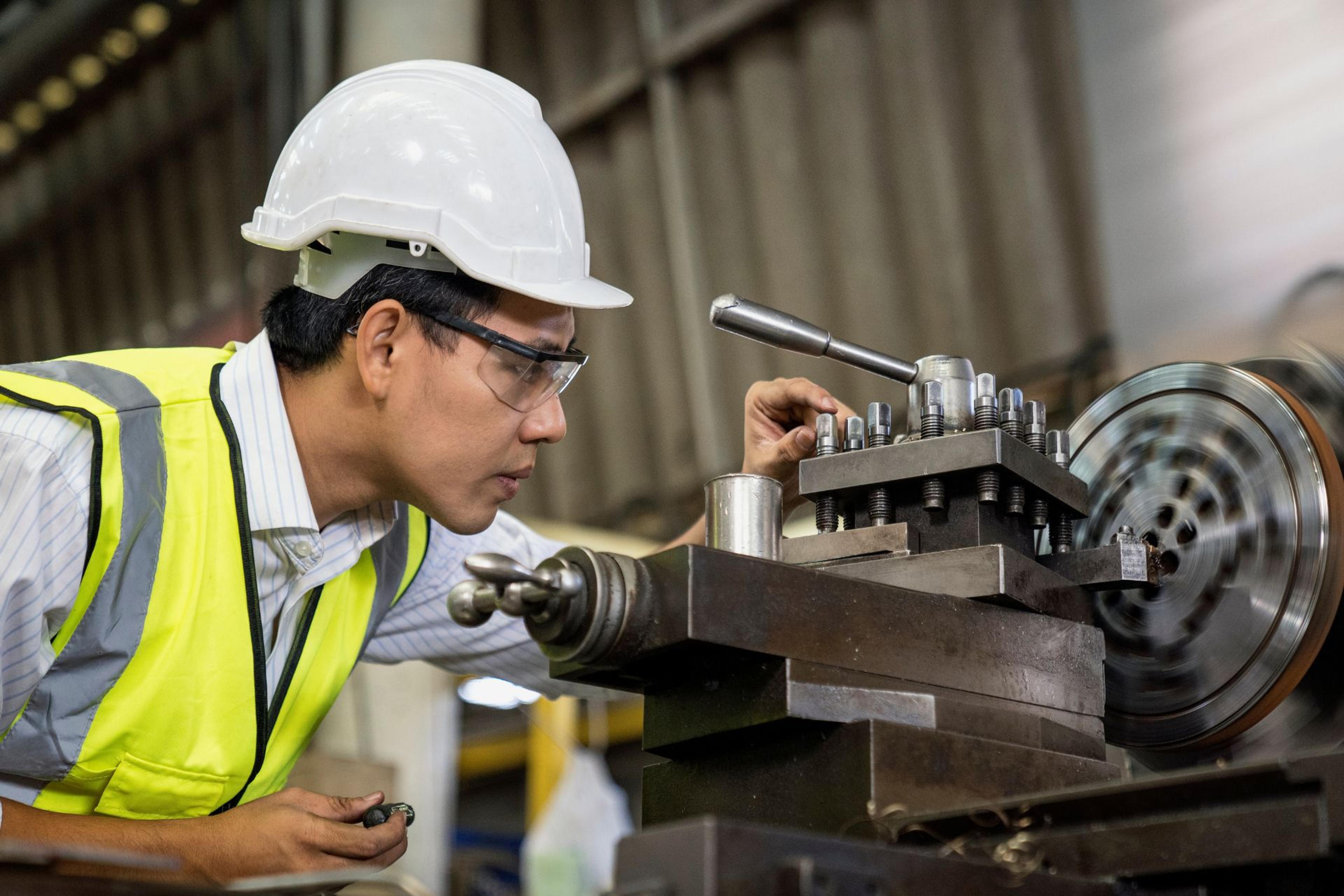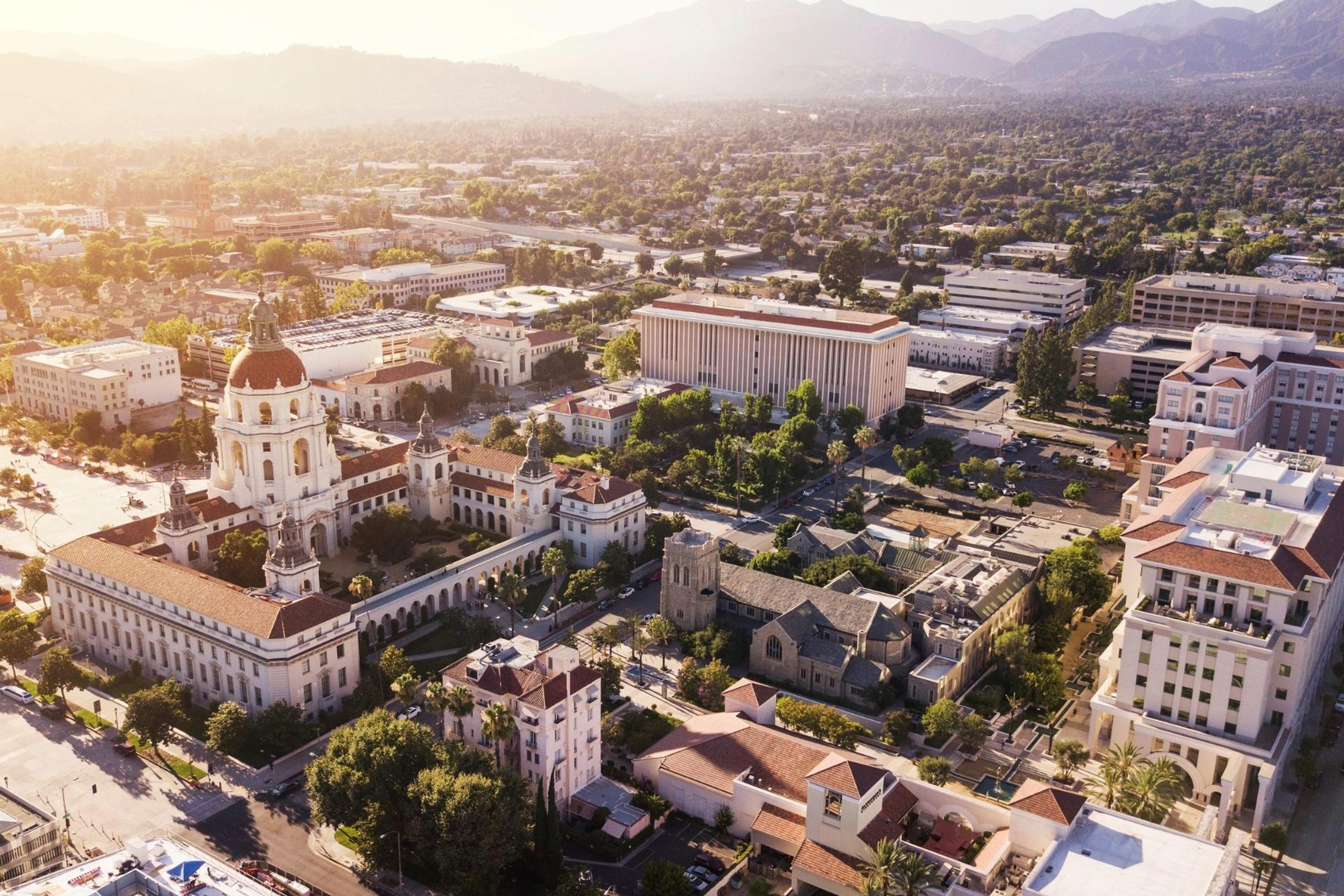The Best Colleges for Aerospace Engineering
Discover the top colleges for aerospace engineering and take your career to new heights.
Posted June 13, 2025

Join a free event
Learn from top coaches and industry experts in live, interactive sessions you can join for free.
Table of Contents
Aerospace engineering is an exciting field that blends the principles of engineering and physics to design and develop aircraft and spacecraft. If you are passionate about exploring the vastness of space or fascinated by the mechanics behind airplanes, pursuing a career in aerospace engineering might be a perfect fit for you. To kickstart your journey, it is crucial to choose the right college that provides a comprehensive and robust aerospace engineering program. In this article, we will explore the best colleges for aerospace engineering, their program offerings, and what sets them apart.
The Best Colleges for Aerospace Engineering: Introduction
When it comes to choosing a college for aerospace engineering, it is essential to consider factors such as reputation, program quality, faculty expertise, research opportunities, and industry connections. To make your decision easier, we have compiled a list of top-notch colleges and universities that consistently excel in aerospace engineering education.
Embarking on a career in aerospace engineering is an exciting and challenging endeavor. Aspiring aerospace engineers are driven by a passion for flight, a curiosity about the mysteries of the universe, and a desire to push the boundaries of human exploration. With the rapid advancements in technology and the ever-growing demand for innovative aircraft and spacecraft, the field of aerospace engineering offers a world of opportunities for those who are willing to take on the challenge.
Choosing the right college or university to pursue your aerospace engineering education is a crucial step towards achieving your career goals. The reputation of the institution you attend can greatly impact your future prospects, as it can open doors to prestigious internships, research opportunities, and job offers from top aerospace companies. Additionally, the quality of the program and the expertise of the faculty members play a significant role in shaping your educational experience and preparing you for the industry.
Research opportunities are another important aspect to consider when selecting a college for aerospace engineering. Engaging in cutting-edge research projects allows students to apply their theoretical knowledge to real-world problems and contribute to the advancement of the field. Collaborating with renowned researchers and industry professionals can provide invaluable networking opportunities and enhance your understanding of the industry's current challenges and future trends.
Furthermore, industry connections are vital for aerospace engineering students. Establishing strong relationships with industry leaders and professionals can lead to internships, co-op programs, and job placements upon graduation. Many colleges and universities have established partnerships with aerospace companies, providing students with access to state-of-the-art facilities, industry-sponsored projects, and mentorship programs.
Now, let's dive into our list of the best colleges and universities for aerospace engineering. We have carefully selected institutions that have a long-standing reputation for excellence in aerospace engineering education. These institutions offer comprehensive programs, state-of-the-art facilities, and a supportive learning environment that fosters innovation and collaboration.
Whether you dream of designing cutting-edge aircraft, exploring the mysteries of space, or developing sustainable aerospace technologies, the colleges and universities on our list will provide you with the knowledge, skills, and opportunities to turn your aspirations into reality. So, without further ado, let's explore the best colleges for aerospace engineering and embark on an exciting journey towards a rewarding career in this dynamic field!
Aerospace Engineering as a Career
Before diving into the specifics of the best colleges for aerospace engineering, let's briefly explore the career prospects in this field. Aerospace engineers are in high demand as they contribute to the design, analysis, manufacturing, and operation of aircraft and spacecraft. They work on various projects, including developing new technologies, improving fuel efficiency, and enhancing safety measures. With a wide array of opportunities in the aerospace industry, a career in aerospace engineering offers a world of possibilities.
One of the fascinating aspects of a career in aerospace engineering is the opportunity to work on cutting-edge technologies. Aerospace engineers are at the forefront of innovation, constantly pushing the boundaries of what is possible. They are involved in the development of advanced propulsion systems, such as rocket engines and jet turbines, that power aircraft and spacecraft. These engineers also play a crucial role in the design and construction of aerodynamic structures, ensuring optimal performance and stability.
Moreover, aerospace engineers are instrumental in the development of unmanned aerial vehicles (UAVs) and drones. These autonomous flying machines have revolutionized various industries, including agriculture, surveillance, and package delivery. Aerospace engineers work on the design and integration of the complex systems that enable UAVs to navigate and perform their tasks efficiently. They also contribute to the development of control algorithms and sensor technologies that enhance the autonomy and safety of these vehicles.
Another exciting aspect of a career in aerospace engineering is the opportunity to contribute to space exploration. Aerospace engineers are involved in the design and construction of spacecraft that enable humans to explore the vastness of outer space. They work on projects such as satellite launches, space probes, and manned missions to other planets. These engineers are responsible for ensuring the reliability and functionality of the spacecraft, as well as the safety of the astronauts or cosmonauts on board.
In addition to the technical aspects, aerospace engineers also play a crucial role in ensuring the environmental sustainability of the aerospace industry. They work on developing technologies and strategies to reduce the environmental impact of aircraft and spacecraft. This includes improving fuel efficiency, reducing emissions, and exploring alternative propulsion systems. By addressing these challenges, aerospace engineers contribute to a more sustainable and eco-friendly future.
Furthermore, a career in aerospace engineering offers a wide range of opportunities for specialization. Whether it's aerodynamics, materials science, propulsion, or systems engineering, there are numerous areas within aerospace engineering where individuals can focus their expertise. This allows engineers to pursue their passion and delve deeper into specific aspects of aerospace technology.
Overall, a career in aerospace engineering is not only intellectually stimulating but also offers the chance to make a significant impact on the world. From designing cutting-edge technologies to exploring outer space and promoting environmental sustainability, aerospace engineers are at the forefront of shaping the future of aviation and space exploration. With a multitude of exciting projects and opportunities, this field provides a fulfilling and rewarding career path for those with a passion for innovation and exploration.
Should You Choose Aerospace Engineering as a Major?
Deciding on a major can be a challenging task, and it is crucial to evaluate if aerospace engineering aligns with your interests and goals. Pursuing a major in aerospace engineering requires a strong foundation in physics and mathematics, as well as a passion for problem-solving and innovation. If you have a fascination for aircraft or space exploration and enjoy applying scientific principles to solve complex challenges, aerospace engineering might be the perfect fit for you.
Aerospace Engineering Major Requirements
When selecting a college for aerospace engineering, it is essential to familiarize yourself with the major requirements. Each college may have its specific curriculum and prerequisites. Generally, aerospace engineering programs include a range of courses such as aerodynamics, structures and materials, propulsion systems, flight mechanics, and control systems. Additionally, practical experience through internships or research projects is commonly encouraged to enhance hands-on skills and industry knowledge.
The Top Colleges for Aerospace Engineering: Acceptance Rate, Program, Curriculum
Now, let's dive into the details of the top colleges and universities for aerospace engineering.
Massachusetts Institute of Technology (MIT)
MIT is renowned for its world-class aerospace engineering program. Their curriculum covers a wide range of subjects, including aircraft and spacecraft design, propulsion systems, and aerospace materials. MIT's extensive research opportunities and state-of-the-art facilities offer students a chance to work on cutting-edge projects. The acceptance rate at MIT is highly competitive, making it a dream college for aspiring aerospace engineers.
California Institute of Technology (Caltech)
Caltech is another top-tier institution that offers an exceptional aerospace engineering program. With a focus on hands-on experience and interdisciplinary collaboration, Caltech provides students with opportunities to work on groundbreaking research projects. The small class sizes foster a close-knit learning environment, allowing for individualized attention from esteemed faculty members.
Stanford University
Stanford University's aerospace engineering program combines rigorous coursework with practical experience. Students have the opportunity to engage in cutting-edge research projects or internships at renowned aerospace companies in the nearby Silicon Valley. Stanford's emphasis on innovation and entrepreneurship equips graduates with the skills needed to thrive in the competitive aerospace industry.
Georgia Institute of Technology (Georgia Tech)
Georgia Tech offers an outstanding aerospace engineering program recognized for its focus on research and hands-on learning. With access to world-class labs and facilities, students have the opportunity to work alongside esteemed faculty on various aerospace projects. The curriculum at Georgia Tech covers a broad range of topics, including structures and materials, aerodynamics, and aircraft systems.
Best Colleges for Aerospace Engineering: Final Thoughts
Choosing the right college for aerospace engineering is a crucial step in building a successful career in this field. The colleges mentioned above are renowned for their exceptional aerospace engineering programs, faculty expertise, and industry connections. However, it is important to consider your personal preferences and goals when making a decision. Take the time to visit campuses, speak with current students and faculty, and evaluate various factors that are important to you. With the right college, you will be equipped with the knowledge and skills to shape the future of aerospace engineering.
If you're navigating college applications or trying to decide which aerospace program is the best fit for your goals, work with a Leland coach. Our top college admissions coaches, including grads from top aerospace schools and former admissions officers, can help you craft a standout application and make a confident, strategic decision.
FAQs
What’s the difference between aerospace and mechanical engineering?
- While both fields share foundational engineering principles, aerospace engineering focuses specifically on the design and development of aircraft and spacecraft. Mechanical engineering is broader, encompassing various systems like automotive, HVAC, and manufacturing. Some universities offer overlapping coursework in the first two years, allowing students to specialize later.
Do I need to be a pilot or have flight experience to study aerospace engineering?
- No, flight experience isn't required. Aerospace engineering programs are designed to teach the necessary principles and skills from the ground up. However, a passion for aviation or space exploration can be beneficial.
Is aerospace engineering a narrow field that limits career options?
- Not at all. Aerospace engineering encompasses various disciplines, including aerodynamics, propulsion, avionics, and materials science. Graduates can work in diverse sectors such as defense, space exploration, automotive, and even finance or consulting.
What is the average starting salary for aerospace engineering graduates?
- Starting salaries can vary based on location, education level, and experience. For instance, graduates from Embry-Riddle Aeronautical University report average starting salaries around $75,000, with variations depending on the specific engineering discipline.
How do aerospace engineering programs support student success?
- Many programs offer small class sizes, hands-on labs, and dedicated faculty support. For example, Embry-Riddle emphasizes teaching-focused faculty, accessible office hours, and tutoring services to ensure students grasp complex concepts effectively.
































